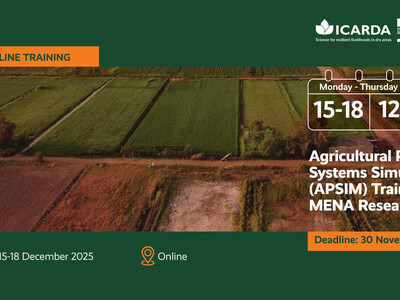Science and innovation in sustainable landscape
November 26-28, 2019. Addis Ababa, Ethiopia. ILRI campus.
The WLE Flagship 2 “ Land and Water Solutions for Sustainable Intensification” aims to work for the sustainable intensification of agricultural land and water solutions for smallholder framers , and achieve both economic good , and landscape sustainability .
There has been a general trend of viewing markets and value chains as principal pathways for intensification of smallholder agriculture, still dominating many parts of Asia and sub-Saharan Africa. However, without an explicit way to manage aggregated impacts of accelerated ALWM at landscape scales, there are high risk of negative impacts on environment and ecosystem services. There is also evidence that value chains driving technical ALWM solutions are not necessarily inclusive, and hence may increase inequity in gender, age rather than create inclusive development for a community or greater population.
The workshop on WLE –LWS will focus on the activities and new (draft) results coming out of Phase II related to ALWM scaling and landscape sustainability. The main objectives are to:
- Relate LWS research for development outputs and outcomes to global discourse on poverty alleviation, food security and sustainable management of natural resources.
- Consolidate activities and results across LWS portfolio.
- Identify emerging knowledge gaps on scaling sustainable landscape practices
The presentations of ICARDA focus on:
- Afghanistan: Integrated Catchment Management and Capacity Building for Improving Livelihoods in Afghanistan
- Pakistan Water Dialogue - Diffusion and Adoption through Partnerships and Action of the Best Watershed Rehabilitation and Irrigation Practices and Technologies to Help Rural Farmers (Phase II)
- Pakistan: Building the Capacity of Agricultural Service Providers (ASPs)
- Ethiopia: watershed /landscapes in Ethiopia
Background
The Land and Water Solutions for Sustainable Intensification (LWS) Flagship develops new knowledge and approaches to achieve more productive and resilient agricultural production across the continuum from rainfed to fully irrigated systems. With local and international partners, including selected AFS CRPs,
The Land and Water Solutions pilots, tests and provides evidence to support decisions and investments in out-scaling of ALWM. Land and Water Solutions addresses the Grand Challenges of competition for land and water, overdrawn and polluted water, and climate change by: 1
- sustainable intensification through ALWM solutions at landscape scale in different environmental, social-institutional and technological contexts
- transformation of medium- and large-scale irrigation systems and management institutions for more equitable service delivery and improved management of problem soils in irrigated areas supporting sustainable increases in food security and ecosystem services
The LWS partners include IWMI, ICRISAT, and ICARDA, as well as ILRI, IFPRI, and FAO. A range of strategic boundary partners are involved in knowledge development, use of new knowledge, and enhanced out scaling.

